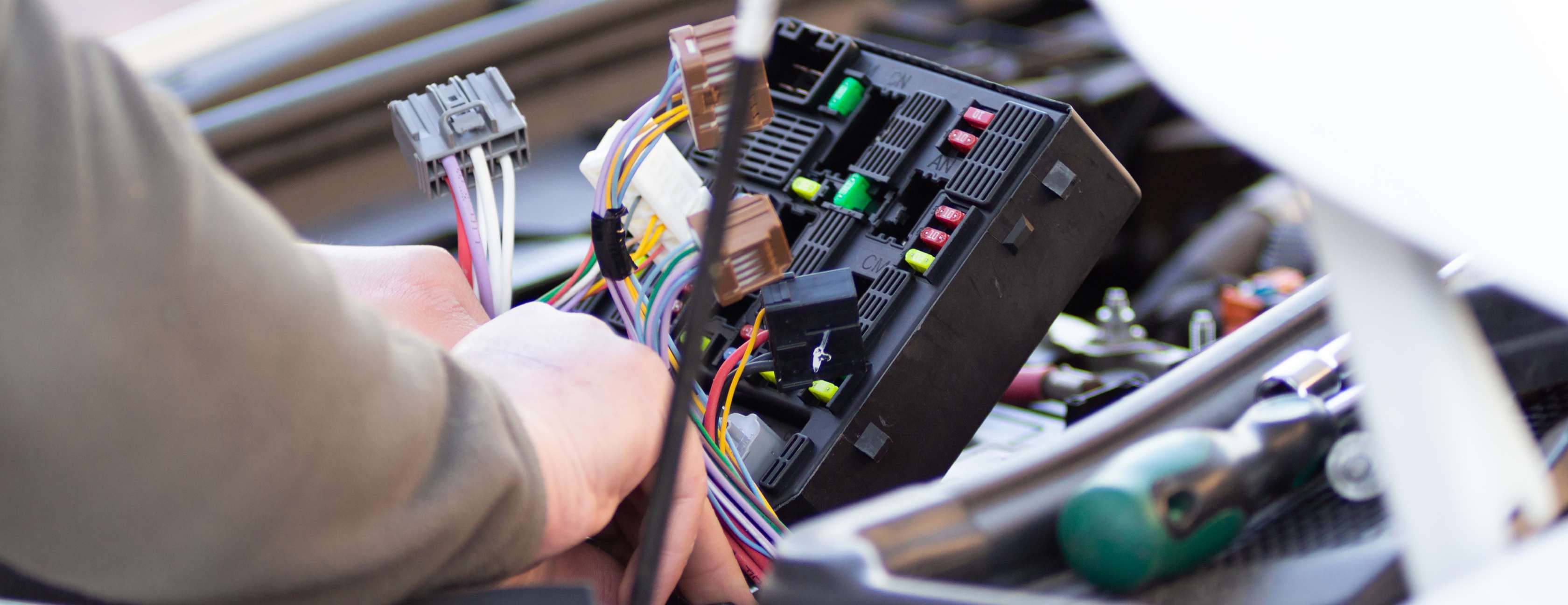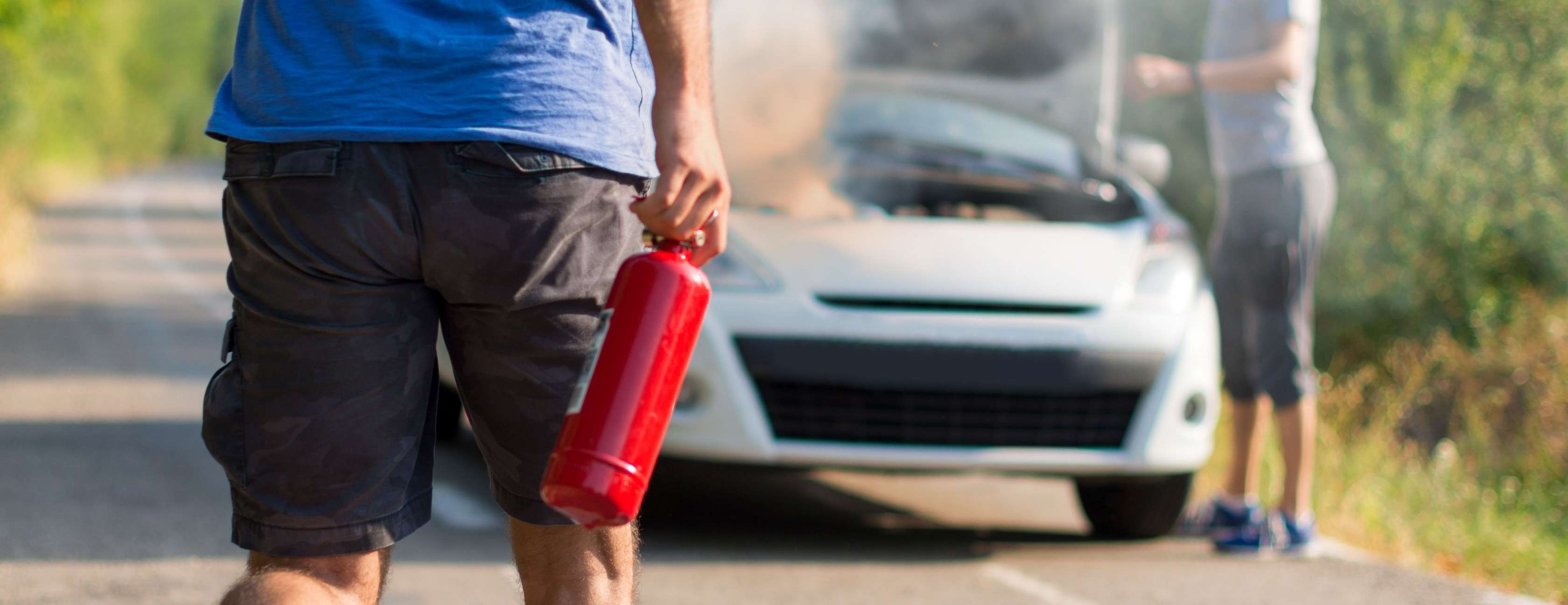Safety in electric cars: How dangerous are e-cars really?
How safe are electric cars?
- The safety of electric cars meets the standards of regular combustion vehicles. Crash tests prove the high level of safety of all-electric cars in the event of an accident.
- The risk of fire in electric cars is very low. However, if the lithium-ion battery ignites due to a technical defect, for example, the fire is more complicated to extinguish than with a combustion engine.
- The most common damage is to the battery, the most sensitive and expensive component of an electric car. But inverters, on-board chargers and electric motors can also cause problems in electric cars.
- Hackers can manipulate e-car charging stations and fill up with electricity at your expense. Anyone who uses public charging stations should therefore keep an eye on their charging card and note the amount of charging.

E-car safety in the crash test
In accident simulations of the European New Car Assessment Programme (Euro NCAP), tested e-car models achieved top marks. The maximum rating of five stars was awarded by the European crash test organization to Audi e-tron, Porsche Taycan, Mercedes-Benz EQC and Tesla Model 3. In the crash test of the Insurance Institute for Highway Safety (IIHS), among others, Tesla Model Y, Volkswagen ID.4 and Volvo C40 Recharge with the highest distinction "Top Safety Pick+".
In 2019, the German Motor Vehicle Inspection Association (DEKRA) came to similar results in a crash test in cooperation with the University of Göttingen. In the event of a collision with a pile, the damage patterns corresponded to Renault Zoe and Nissan Leaf those of comparable combustion vehicles. The impact speed was up to 84 km/h. By comparison, the maximum speed in Euro NCAP crash tests is 64 km/h.
Crash tests prove high e-car safety
Electric car safety: Common problems
In the case of all-electric vehicles, the electric motor, inverter, on-board charger and Electric Car Battery most often affected by defects. Compared to gasoline, diesel or Natural Gas Car however, an electric car has fewer components that are susceptible to damage. This means less repair and maintenance effort.
Important: Always leave e-car damage to a professional. Above all, stay away from high-voltage cables and orange cables. Attempts to repair an electric car on your own can be dangerous.
Electric car battery: Damage is expensive
The lithium-ion battery is the most sensitive and expensive component of an electric car. When building electric vehicles, the safety of the electric car battery is therefore paramount. Manufacturers reinforce the energy storage systems with a stable frame that protects them in the event of accidents.
It rarely happens even without a collision that a battery replacement is necessary due to a technical defect. Within the warranty period, manufacturers are obliged to provide a new battery or to grant a discount on new purchases. If the e-car battery is damaged in an electric car accident after the warranty expires, most comprehensive insurance policies reimburse part of the replacement costs. If, on the other hand, you have a Rent an e-car battery
How high is the risk of fire with electric cars?

E-car fires are more complicated to extinguish
If the lithium-ion battery of the electric vehicle deforms during a Car accident, the battery cells can catch fire. Once the chemical process inside the battery has been set in motion, it jumps from one cell to the next ("thermal runaway"). Only intensive cooling with large quantities of water can stop an electric car fire.
Nevertheless, there is no risk of explosion with a burning electric car. This is because all electrical components in electric cars are designed to be intrinsically safe. This means that in the event of a collision or defect, the current flow is interrupted. The high-voltage system of the electric vehicle switches off automatically within milliseconds. This prevents the e-car battery from igniting. In addition, the battery is protected from the outside in several ways. The risk of an e-car catching fire (= spontaneous combustion) while driving, stationary or charging due to a technical defect is also very low.
Electric car fire: What to do?
In the event of e-car fires, the following applies to drivers and passengers:
- Leave the vehicle as soon as possible.
- Notify the fire brigade and point out that it is an electric car.
- Stay away from the burning vehicle.
- Do not approach the extinguished e-car before the fire brigade releases it.
The same applies if an electric vehicle is on fire in an underground car park. Unlike in the open air, heat development can endanger the statics of the building – especially if the flames spread to surrounding cars. The garage or the building above it collapses in the worst case.
Burning electric car battery can ignite again
Unlike combustion vehicles, electric cars cannot be seen with the naked eye whether the fire has been completely extinguished. Up to 24 hours after an electric car fire, the battery can catch fire again. This is because when the lithium ions have reached a certain temperature, they ignite again and again on contact with oxygen. After the extinguishing work, the fire brigade will therefore use a thermal imaging camera to check whether heat is still developing in the electric car.
To prevent re-ignition, burned electric car batteries are stored in water until scrapping or disposal. Towing companies also park burnt-out e-cars separately from other cars or in a water basin. This prevents the flames from spreading to other vehicles if the battery ignites again.
Have e-car safety checked in the workshop
Always bring your electric car in for inspection after an accident or breakdown. Employees of a car workshop specializing in electric vehicles can assess whether components are defective or damaged. And whether the electric car poses a risk due to a defective battery or electrical voltage.
Find out in advance whether the workshop offers vehicles with alternative drives Accepts. This is not always the case. Because in order to repair e-cars, car mechanics need further training and expensive additional equipment.
Many workshops do not offer repair and service for e-cars. The reason: With around 1.35 million registered e-cars (BEV and hybrid vehicles, as of January 2024), there are still significantly fewer e-cars than combustion engines in Germany. In addition, damage to electric vehicles occurs less frequently than with regular passenger cars. In authorized workshops of the e-car manufacturers, on the other hand, repairs are usually possible without any problems.
Electric car accident: How to behave correctly
- Secure the accident site.
- Call the emergency services or the police.
- Take care of the injured.
- Write down the contact details of those involved in the accident and witnesses.
- Report the damage to your car insurance company.
Important: Inform the emergency services that an e-vehicle is damaged. This allows first responders at the scene of the accident to check with due caution whether the electric car poses a danger from electrical voltage. For drivers of the accident car or first aiders, the following applies: Keep your distance from the e-vehicle and leave roadside assistance to the professionals. If you accidentally touch orange cables or energized vehicle parts, there is a risk of death.
Tip: Electric car manufacturers offer rescue cards. You can download the document for your e-car from the website of the respective car brand, print it out and store it in the glove compartment, for example. In an emergency, the map shows the emergency services where they can safely open your electric vehicle without damaging the battery.

Do you have damage to your car, for example due to hail or a wildlife accident? Or damaged another vehicle? A claim is never pleasant. We are happy to help you – and do everything we can to make the process as simple as possible for you.
Report your accident quickly and easily via our Allianz Online Tool. If you have taken out the Comfort or Premium product lines, you can alternatively reach us by phone on the Allianz claims hotline 0800 11223344 (from abroad 00800 11223344).
, the terms and conditions of the car manufacturer's lease apply.
